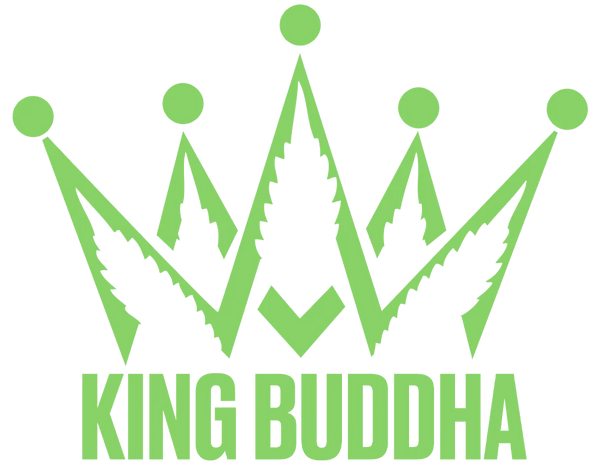Cannabidiol (CBD) is a natural compound that comes from the leaves, stalks, and flowers of industrial hemp or marijuana cannabis. It is the most widely accepted non-intoxicating cannabinoid found in Cannabis sativa plant. Hemp-based CBD extracts should not be confused with CBD from marijuana, even though they both derive from the same plant – all of our King Buddha Broad-Spectrum CBD products contain CBD extracted from industrial hemp.
FAQ's
FAQ's
Cannabinoids are molecular compounds naturally made from Cannabis sativa plants; however, they are also found in other plants and produce inside our bodies. Cannabinoids are classified as fatty compounds that play vital roles within our immune and central nervous system.
Thanks to the 2018 Farm Bill, hemp and hemp-derived products are legal to produce, sell, and consume throughout all 50 states. These products must be derived from industrial hemp containing less than 0.3 percent THC. That being said, states can still decide if they want to allow the sale and production of hemp-based products.
Because CBD is a non-intoxicating component from industrial hemp, which legally must have less than 0.3 percent of Tetrahydrocannabinol (THC), there’s no “high” or euphoric effect as a result of using hemp-derived CBD.
Because each person’s body structure is unique, it is difficult to set a predetermined measurement that is right for everyone. It is recommended to consult a doctor or health professional to determine an amount right for you.
Properties of CBD will vary for each individual depending on height, weight, and the quantity of CBD taken. Because there are no intoxicating ingredients with CBD oil, there is no “high” effect; start with small amounts and gradually increase with each use until reaching desired results.
While hemp-based CBD products are manufactured from hemp plants containing less than 0.3% THC, there are still trace amounts. There is a small percentage that consuming CBD may lead to a positive drug test for THC, as it does with any product made from hemp. If this is a significant concern, we advise speaking with your employer or doctor before use.
With proper storage, quality is maintained up to two years for King Buddha CBD products.
Store products in a dry, cool area with no direct exposure to constant light or excessive heat. For any questions, please contact us at 1-877-699-3366 or support@KingBuddhaCBD.com
Have a question that wasn't answered here? Please contact us at 1-877-699-3366 or support@KibgBuddhaCBD.com
